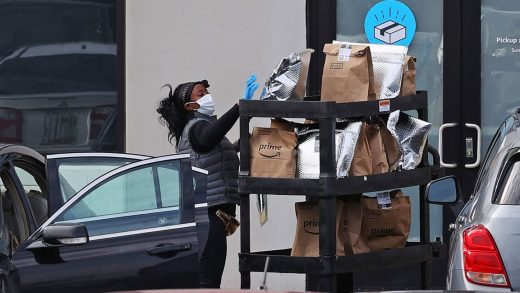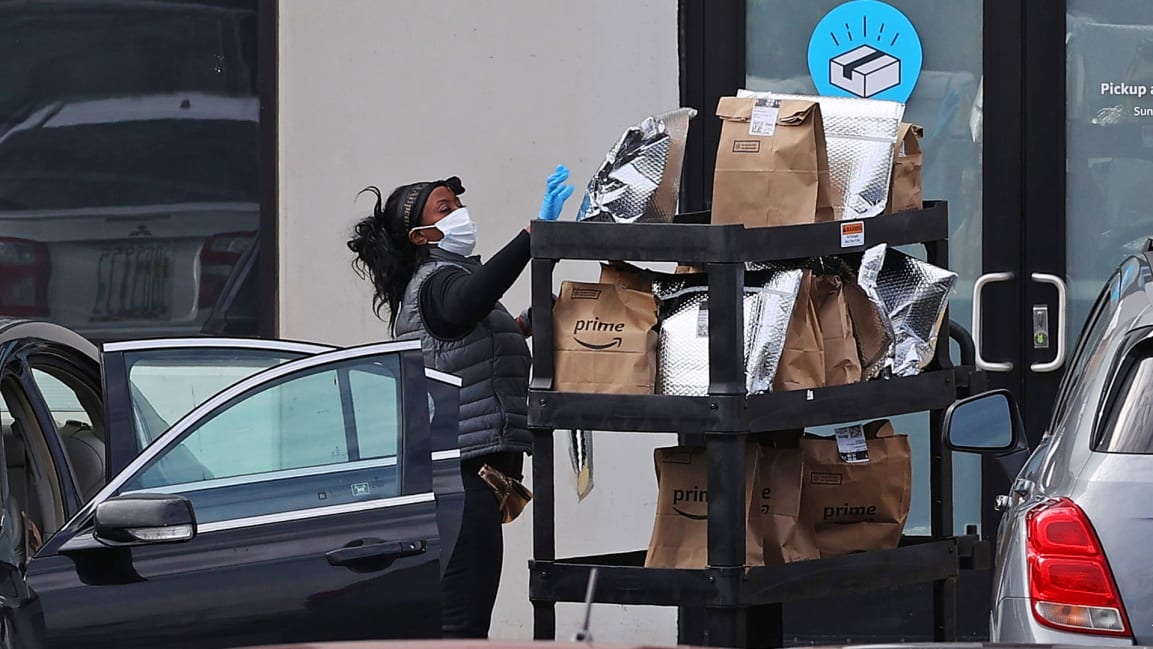We can’t let Amazon’s essential workers become invisible again
Earlier this month, Amazon’s vice president of cloud computing, Tim Bray, resigned in a rather unusual manner.
Long-serving execs, especially in tech, typically leave without a lot of noise, happy to go out with an air of quiet triumph. They don’t pull a full Jerry Maguire and put out a bridge-burning cri de coeur of a public letter blasting their own industry.
That’s exactly what Bray did, however. His letter of leave, delivered in blog-post format, is worth reading in full, but I want to highlight the following lines in particular:
I quit in dismay at Amazon firing whistleblowers who were making noise about warehouse employees frightened of COVID-19 . . .
VPs shouldn’t go publicly rogue, so I escalated through the proper channels and by the book. . . . That done, remaining an Amazon VP would have meant, in effect, signing off on actions I despised. . . . At the end of the day, the big problem isn’t the specifics of COVID-19 response. It’s that Amazon treats the humans in the warehouses as fungible units of pick-and-pack potential.
Bray’s letter seems to have been written from a genuine place of dismay and courage. And it brings to mind an observation many have made over the last few months: The people now being termed as essential workers were until recently often called “unskilled labor.”
It’s precisely this “unskilled labor”—those humans in the warehouses, the grocery store clerks, the cleaning staff at hospitals, the people fulfilling your packages now that you can’t easily go to the store—that is currently keeping our economy going. While Bray’s letter never uses the exact term “essential workers,” it makes clear how essential they are to Amazon’s functioning in a manner that would have been unrecognizable from a Silicon Valley executive just six months ago.
The quest to eliminate friction
The dream of Silicon Valley for so long has been frictionlessness—the drive to utterly abolish any residual sense of human participation in the chain between you wanting a new remote control for your television, and the Amazon Prime package with said remote materializing within your domicile. Very often, Silicon Valley has viewed friction itself as an enemy to be destroyed.
The idea that humans participating in fulfilling your needs is a form of friction has disturbing real-world consequences: Amazon warehouse workers have resorted to peeing in bottles to avoid getting fired for missing insane packing and shipping quotas; in the warehouses, the rate of serious injuries is more than double the national average for the warehouse industry; the constant tracking and surveillance routinely drives employees to turn on each other; and all this to keep jobs that pay workers wages barely above the poverty line in service of a company that would rather you didn’t know they exist.
As I’ve written before, frictionless often means literally thoughtless—a world where there is as little cognitive activity as possible between a desire and the fulfillment of that desire. For a long time, Amazon sold “dash buttons” you could press to get a refill of almost any household product, from garbage bags to energy bar to condoms, until European courts pointed out the flouting of consumer-price-awareness laws. In many ways, Amazon has been aiming for a simulation of the replicator from Star Trek: The Next Generation: the automated arrival of whatever product we might wish, with science so advanced it may as well be magic.
With COVID-19, that sense of frictionlessness has been obliterated.
From the perspective of a more enjoyable customer experience, it makes sense to want to remove the more bothersome reminders of package delivery. But to create that sense of frictionlessness, Amazon has aimed to make the workers who actually bring a physical, non-materialized-from-the-void product as invisible as possible. Read: not striking, or complaining about working conditions during COVID-19, or requiring protections that’d take your two-day Amazon Prime window to a four- or five-day window.
But with COVID-19, that sense of frictionlessness has been obliterated: Prime packages now take longer. On May Day, Amazon workers went on strike. Amazon has even gotten combative on Twitter over worker rights. None of that, from Amazon’s perspective, is ever supposed to happen. Which explains why Amazon’s way of dealing with this unwanted attention to human labor was to effectively make the people behind the disruption disappear. “Management could have objected [to a video call for Thursday April 16 featuring warehouse workers from around the world], or demanded that outsiders be excluded, or that leadership be represented, or any number of other things; there was plenty of time. Instead, they just fired the activists,” Bray notes in his resignation letter.
Amazon and its Silicon Valley peers are now having to contend with frictionlessness being revealed for a mirage. It’s like we were in a haunted house ride, an unusually effective one that relies on dark and sound effects for its impact. Then, suddenly, the car stopped in its tracks, and we could see all the animatronics, paused, in full house lights—and couldn’t be scared by the ride again (or think our Prime packages arrived by magic).
A new GI Bill
This crisis has made it clear that these workers who’ve long been mistreated are utterly essential not just to keeping society going during a pandemic, but also to enabling Amazon’s entire brand of convenience. It’s undeniable that these same workers should be compensated and treated in a way that reflects their indisputable value and outsized contributions.
Now that we’ve seen the essential workers through new eyes, how do we make sure we don’t lose sight of them when frictionlessness is back and this pandemic is behind us?
The question of how to best and most commensurately recognize and reward the people who’ve served and protected us was thoughtfully verbalized by tech policy thinker Linda Raftree in early April. “How are we going to repay all the front line workers in this pandemic?” she asked. “Do they get to board airplanes first? Their loans forgiven? Free college? Citizenship? Living wages and benefits? Free, quality healthcare?”
We have an example of what that looks like in living memory: the GI Bill, which is often given a fair amount of credit for the mere existence of a postwar middle class in the United States. It’s worth proposing what a similar package of returning-to-everyday-civilian-life benefits might look like for the workers who powered our society in the midst of a global pandemic, with no option to work from home. An Essential Worker Bill akin to the GI Bill would go a long way toward forcing accountability from Amazon and from Big Tech more broadly—and keeping essential labor from becoming invisible again.
Jumana Abu-Ghazaleh is the founder and president of Pivot for Humanity, an organization working to professionalize the social tech industry, creating a more responsible, ethical, and accountable internet.
(31)



